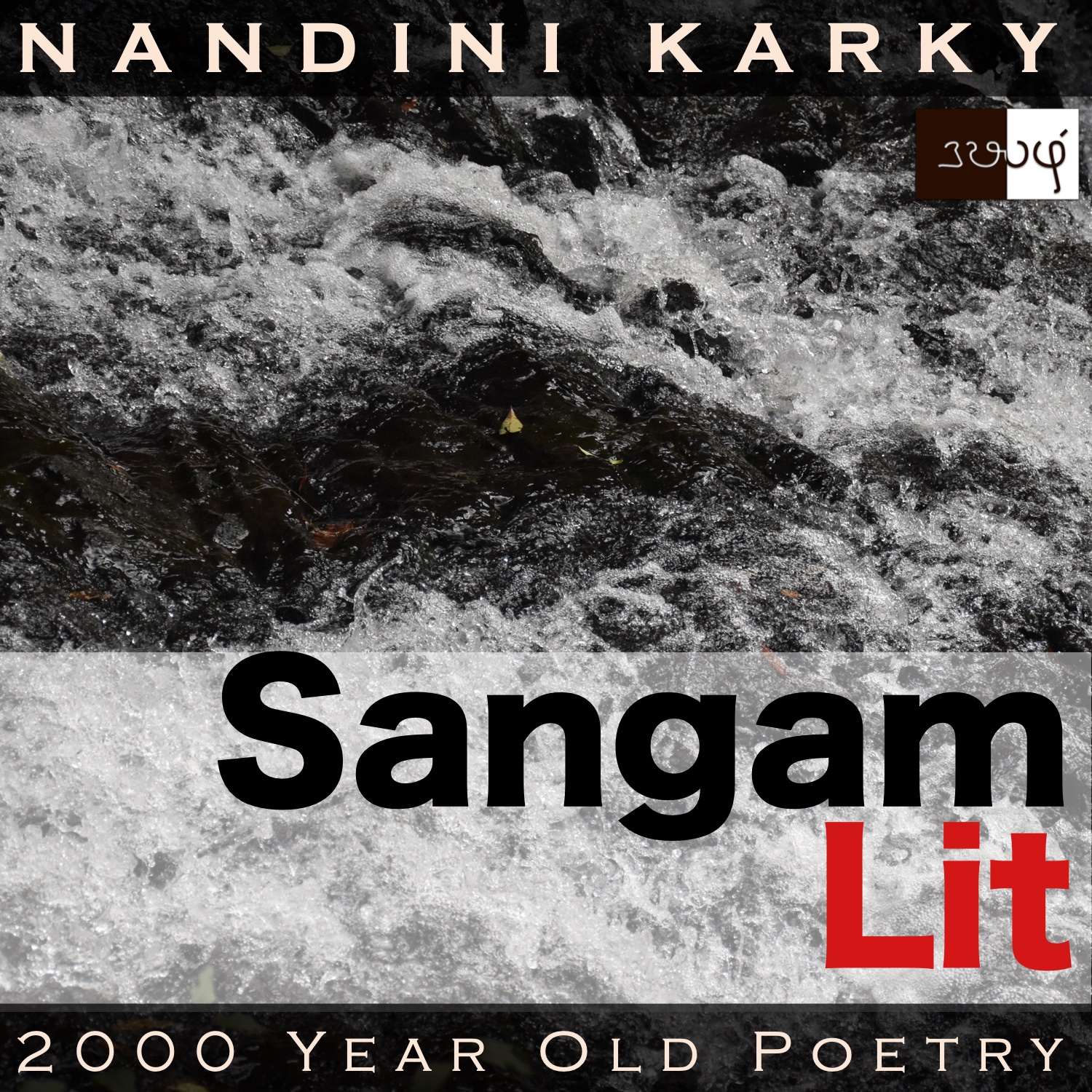Podcast: Play in new window | Download
Subscribe: Apple Podcasts | Spotify | Amazon Music | Android | iHeartRadio | TuneIn | RSS | More

In this episode, we listen to a person’s reaction to a bitter truth, as portrayed in Sangam Literary work, Kurunthogai 271, penned by Azhisi Nachaathanaar. Set in the farmlands of ‘Marutham’, the verse speaks in the voice of the lady to the confidante, in response to the man’s request for reconciliation.
அருவி அன்ன பரு உறை சிதறி
யாறு நிறை பகரும் நாடனைத் தேறி,
உற்றது மன்னும் ஒரு நாள்; மற்று-அது
தவப் பல் நாள் தோள் மயங்கி,
வௌவும் பண்பின் நோய் ஆகின்றே.
‘One day joy and many day malady’ is the crux of this one! The opening words ‘அருவி அன்ன பரு உறை சிதறி’ meaning ‘spreading droplets as if it were a waterfall’ depict the single visual image in this tiny verse of abstractions. In ‘யாறு நிறை பகரும் நாடன்’ meaning ‘the rivers that spread through the land of the lord’, the entity referred in the first line comes into view. Note how the verse uses the descriptor of ‘நாடன்’ which is generally used for the man from the ‘Kurinji’ land or the mountains, in addition to the region’s characteristic elements such as cascades and rivers. Could there be any alternate view about the assumed setting of this song? Leaving aside that open question, we glimpse at ‘உற்றது மன்னும் ஒரு நாள்’ meaning ‘united for a day’. This is followed by ‘தவப் பல் நாள் தோள் மயங்கி’ meaning ‘on many days, slaying the health of my arms’ and this talks about pining attacking a woman. Ending with the words ‘நோய் ஆகின்றே’ meaning ‘it becomes an affliction’, the verse evokes our empathy.
What could be the message spread by those droplets? The context reveals that the man and lady were leading a married life when the man took to keeping the company of courtesans. Some days later, intending to return to his home, the man seeks the help of the confidante. Agreeing to help him, the confidante brings the message to the lady that she must accept him. To the confidante, the lady says, “Scattering huge droplets, akin to a cascade, brimming rivers spread in the land of the lord. Trusting him, I was with him but for a day, and yet, this has ruined my arms, many, many days, becoming the affliction that steals away beauty!” With these words, the lady expresses in a lamenting voice that she has no way but to accept the man.
Time to delve into the nuances of this tiny verse. The lady starts her words by mentioning about water droplets leaping about from a river in full spate, as if it were a cascade. Curious how one element of the land, a river, is compared to another element of the land, a waterfall. Moving on, the lady points to how the river flows through the man’s land. After describing his land, the lady talks about how trusting him, she united with him, only for a day. But, because of that, for many, many days now, her arms were in a state of despair and she finds herself suffering from that affliction which slays beauty in one.
In the scene of water droplets scattering around a river, there’s a metaphor for the man scattering his attention towards the courtesans. However, rising above this truth, the lady implies that although she shouldn’t have, she had committed herself to the man, believing in him, and now, no matter that he was the cause of her beauty’s ruin, she cannot give up on him at this point. There seems to be an implied philosophy in Sangam times that one must analyse well before getting into a friendship or relationship for after having accepted that relationship, there’s no going back or giving up, as we have seen explicitly stated in Natrinai 32. Here, the same philosophy seems to be presented in a subtle and hidden manner, and through her words, the lady is said to be conveying her acceptance to the confidante’s proposal that she reconcile with the returning man.
A moment to ponder on that implied philosophy! There can be no doubt that it’s a wise move to think well about one’s relationships before committing. But what about the other ‘do or die’ kind of notion of never giving up or accepting whatever the other does? Would this be acceptable to your philosophy in life today? In deeply answering such questions, we can appreciate that unique quality of art and poetry in revealing our stances about things we never had the time to pause and think about!




Share your thoughts...